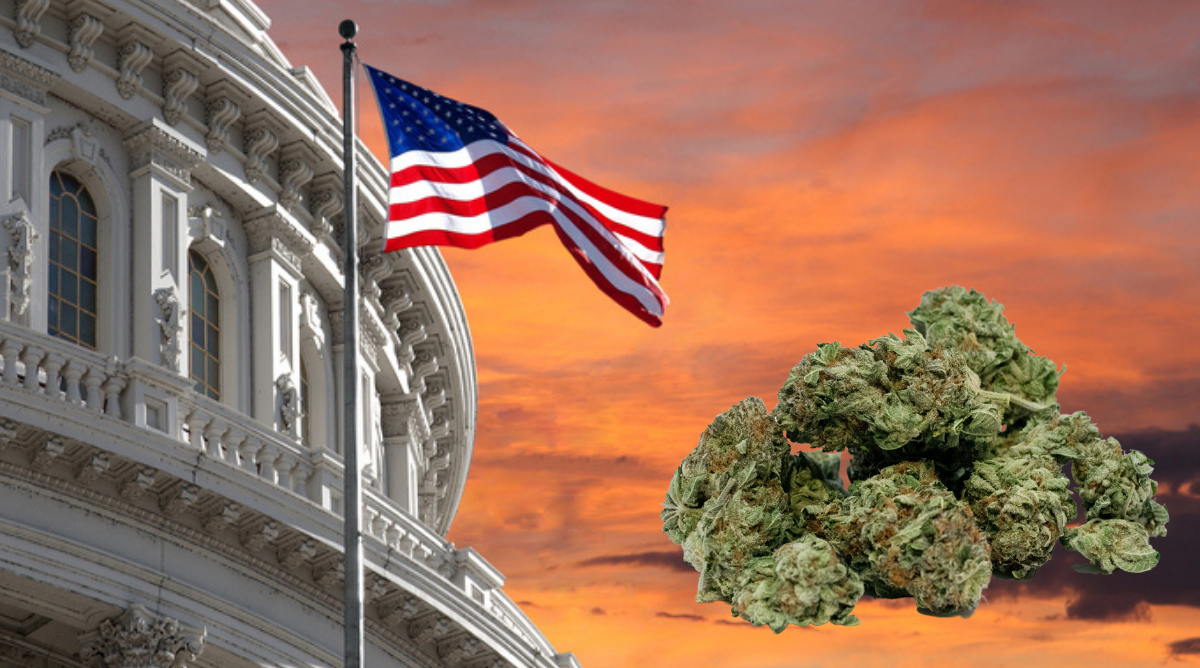
Is this it? The moment where the U.S. federal government leaves the dark ages of cannabis prohibition behind? Starting a new era with federal decriminalization?
America will soon be flanked by federally legal weed to the north (Canada) and the south (Mexico). And with thirty-six (36) states that currently allow medical or both medical and adult-use (recreational), many feel the tipping point has already passed.
The MORE Act has been inching its way through the House of Representatives since it was introduced in 2019. During the former administration under Donald Trump, the legislation passed the House but got shut down on arrival in Congress.
Game over? Not quite. A change in Presidency and a new year meant a second chance to address the MORE Act and make it happen. And now, with a new Senate Majority Leader (Chuck Schumer) who is pro-legalization, we’ve never historically been closer to federal legalization, which will change everything (in some really good ways).
Without getting offensively political, we have seen the trend of Republicans that are opposed to cannabis legalization. The majority (but not all), as the Marijuana Opportunity Reinvestment and Expungement Act (MORE) is bipartisan. There are supporters within the ranks of the Republican Party that would like to see decriminalization and federal legalization go through.
Because it’s the right thing to do, and taxation would be highly lucrative right now for the federal government. Not saying that is the only motivator. Social equity weighs heavily, acknowledging the victimization that generations of people of color (POC) and their communities have endured.
Still today, black men and women are arrested at more than four times (4X) the rate of Caucasians in the United States. And the statistics tell us that black men and women also face harsher sentences for identical crimes. The MORE Act contains social equity legislation, mass expungement plans, and much more.

In some states, adult-use (recreational) weed can be state and community taxed at a rate of over 30%. Often, patients with a medical card get a significant discount on taxes when they buy at a medical dispensary. In fact, many states may follow the policy that New Jersey has established to phase out taxes for patients entirely.
That model works in states that have strong recreational weed sales. The taxes collected in New Jersey on adult-use cannabis will fund the administration of both programs; medical and recreational. Eventually, patients in New Jersey will not be paying taxes at all. And that is a good thing.
In other places like Oklahoma, retail taxes on cannabis are cheap by comparison to states like New York. So, the federal excise tax is going to impact people in different ways, depending on the current tax rate of their state.
Federal decriminalization could also impact the overall sales of cannabis if taxes are too high (inclusive of the new federal excise tax). That may make some states amend retail taxes if the cost of cannabis threatens to reduce legal sales significantly. And prompt more consumers to return to the black market or illegal avenues for affordable weed.
One of the great social benefits of legalized cannabis is that data shows it stifles organized crime. Criminal syndicates still exist for other types of controlled substances, but legalized weed flattens the illicit market. And that helps reduce violent crime, which is a definite bonus.

Considering that some states have stifling cannabis tax rates already, the MORE Act introduces the federal tax slowly. Then ramps it up when consumers, cultivators, and dispensaries get used to the new tax.
The proposed federal tax structure in the MORE Act is:
The ad valorem tax system based on the weight of products will prove a little challenging for MSO’s or large dispensary chains after federal decriminalization. When they are vertically integrated, there is no transfer of product from one supplier to another for retail sale. Because they grow, process, manufacture, distribute and retail through their own private and controlled supply chain.
But then again, MSO’s will be able to legally sell and ship products across state borders. And that will also allow them to grow exponentially.
Featured Image: Deposit Photos | Canva
No Information on MarijuanaDoctors.Com should be used to diagnose, treat, prevent or cure any disease or condition. You can view our Full Disclaimer here.